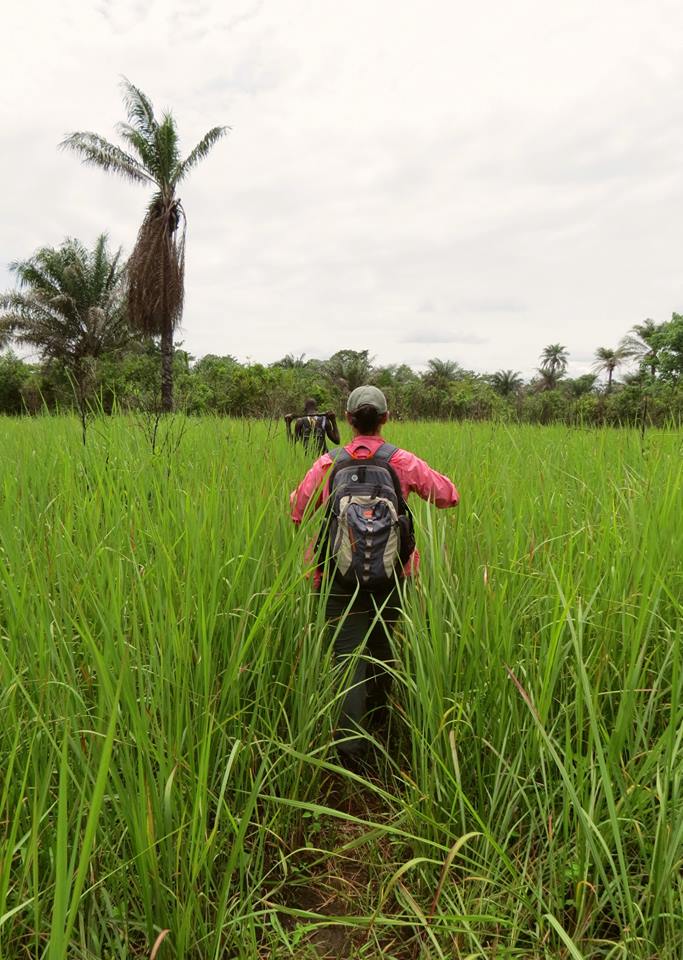Life After Graduation
We are committed to helping our students secure employment after graduation. Our graduates pursue a wide range of career paths in various fields such as academia, business, cultural resource management, medicine, museum work, government, community development, public relations, healthcare, environmental services, and contract archaeology.
Resources and Support
Christina Cloutier-Barbour
Curator of Conservation, Research and Chimpanzees
Ph.D. Supervisor: Professor Kristen Hawkes
I’m the Curator of Conservation, Research & Chimpanzees at an Association of Zoos & Aquariums (AZA) accredited zoo in south Florida. I spend my days doing anything from troubleshooting chimpanzee management issues, to writing conservation grants, to engaging in chimpanzee husbandry training. I regularly get to contribute to in-situ conservation work, consult on chimp medical/behavioral issues for outside institutions, and review research proposals. I write journal articles, act as Program Leader for the AZA Chimpanzee SAFE (Saving Animals from Extinction) initiative, am a member of the Chimpanzee Species Survival Program (SSP) and do a variety of science communication within the local community, online & in media. Essentially, I’m tasked with keeping our 18 chimpanzees (& 2 white-handed gibbons) happy and healthy, while also curating our conservation and research initiatives for the zoo. It’s all incredibly rewarding.
|
|
|
|
Working with reconstructions of the canyon’s environment around 950 years ago, and using experimentally derived data on the costs and benefits of irrigation in Range Creek, Shannon has developed a formal model that predicts when and where irrigation is expected and where it isn’t. This general model is the foundation for studying prehistoric farmers throughout the semi-arid regions of the world.
Ashley Parker, Ph.D.
Senior Archaeologist
Far Western Anthropological Research Group, Inc.
Dept. Ph.D. Committee: Brian Codding, Polly Wiessner, Kristen Hawkes, Shane Macfarlan, James O'Connell
Ashley has worked as an archaeologist specializing in Great Basin prehistory for over a decade in academic, governmental, and CRM settings. Her current research focuses on hunter-gatherer fire use as landscape modification practice and how archaeological and ethnographic data can be utilized in contemporary indigenous land claims.
Nicole Herzog, Ph.D.
Assistant Professor, Anthropology
Univeristy of Denver
Ph.D. Committee: Kristen Hawkes, Brian Codding, Polly Wiessner, James O'Connell
Nicole is a Tenure-Track Assistant Professor in the Department of Anthropology at the University of Denver. Her current research includes studying the links between diet, fire, and human evolution. She currently conducts ethnobotanical work in the arid west and also continues to work with primatological and human data-sets on the use of fire-modified landscapes.
Nicole Torosin, Ph.D.
Postdoctoral Researcher
Ellison Lab - Department of Genetics, Rutgers University
Ph.D. Committee: Leslie Knapp, Tim Webster, Dennis O'Rourke
Nicole's dissertation research focused on how the immune response has adapted to yellow fever virus in endemic areas. She uses populations of howler monkeys in Central and South America as a model to identify genetic aspects of the immune response that may affect yellow fever susceptibility. Her work at Rutgers will likely include analyzing aspects of 3D genome organization within the phylogenetic framework of Drosophila.
Ryan Bohlender, Ph.D.
Post-Doctoral Fellow
M.D. Anderson Cancer Center, Department of Epidemiology, University of Texas
Ph.D. Committee: Alan Rogers, Dennis O'Rourke
Ryan Bohlender is a population geneticist, originally trained in anthropology at the University of Utah. His dissertation included a model of admixture between modern humans, Neanderthals, and Denisovans. Now, he is working to understand sources of heritable cancer risk. His interests include statistical genetics and software development.
Chelsea Leonard, Ph.D.
Anthropologist and Qualitative Methodologist
VA Eastern Colorado Health Care System
Ph.D. Committee: James O'Connell, Kristen Hawkes, Joan Brenner-Coltrain, Dennis O'Rourke
Chelsea Leonard is an Anthropologist and qualitative methodologist at the Denver-Seattle Center of Innovation for Veteran-Centered and Value-Driven Care at the Veterans Health Administration in Denver, CO. She leads the evaluation for the rural Transitions Nurse Program. Her research interests include healthcare decision making and the role of observation and ethnography in health services research.
R. Kelly Beck
Cultural Resources Principal Investigator
SWCA Environmental Consultants
Ph.D. Committee: B. Codding
Dr. Kelly Beck is an archaeologist at SWCA Environmental Consultants in Salt Lake City. Over the years he’s found himself frequently involved in contentious projects with conflict between agency officials, project proponents, and the interested public. Dr. Beck is a proud member of the most recent graduate cohort of the Short Course on Natural Resources Collaboration through the Wallace Stegner Center’s Environmental Dispute Resolution Program.
